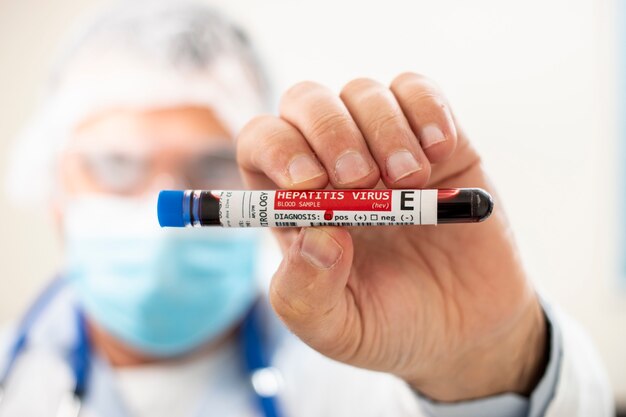Can Cancer Be Detected in Blood Work? What You Need to Know
Discovering cancer early significantly improves treatment success rates, making detection a crucial topic of interest. Among the numerous methods for early cancer detection, blood work holds a significant place. But how effective is it at identifying cancer? Here, we delve into this question, examining various aspects of blood tests in cancer detection, what they can reveal, and how they fit into the broader spectrum of diagnostic tools.
The Role of Blood Tests in Detecting Cancer
Types of Blood Tests
Blood tests vary in function and focus. When it comes to cancer detection, several types might be utilized:
Complete Blood Count (CBC): This test measures different components of blood, such as red and white blood cells, and platelets. Abnormal results may suggest the presence of cancer, such as leukemia, but can also indicate other conditions.
Blood Protein Testing: Some cancers produce specific proteins in the blood detectable through protein electrophoresis. This test is particularly useful for conditions like multiple myeloma.
Tumor Marker Tests: These tests look for specific substances associated with cancer cells, often proteins. Examples include the PSA test for prostate cancer or CA-125 for ovarian cancer.
Circulating Tumor Cell Tests: These newer tests identify cancer cells that have broken away from the primary tumor and entered the bloodstream.
How Effective Are Blood Tests?
While blood tests can provide crucial insights, they have limitations:
- Specificity: Not all blood tests are specific to cancer, meaning abnormal results could stem from a condition other than cancer.
- Early Detection: Some cancers might not show up in blood tests until they have advanced significantly.
- Tumor Markers: Not all types of cancer have known markers, and not all tumor markers are specific to cancer.
Navigating the Diagnostic Maze: Beyond Blood Work
Blood tests are just one piece of a larger diagnostic puzzle:
Imaging Tests
Techniques like X-rays, CT scans, MRIs, and ultrasounds provide visualizations of abnormalities that blood tests might suggest. These imaging tests help locate the tumor and assess its size, shape, and spread.
Biopsies
A biopsy involves sampling tissue from the suspicious area. It provides definitive diagnostic evidence, revealing whether cells are cancerous and the type of cancer present.
Genetic and Molecular Testing
These tests analyze a person’s DNA to look for mutations that might indicate cancer. They are becoming more widely used and help tailor personalized treatment plans.
Blood Tests in Cancer Monitoring
Beyond detection, blood tests play a crucial role in monitoring cancer response to treatment and remission:
- Tracking Progress: Blood tests can help track how well the body is responding to therapy, offering clues about improvement, stability, or progression.
- Side-Effect Monitoring: They help monitor side effects of chemotherapy and other treatments, such as impacts on blood cell levels or organ function.
- Post-Treatment Surveillance: Regular blood tests can help monitor for cancer recurrence, providing peace of mind and early detection if cancer returns.
Innovations in Blood Work: What’s on the Horizon?
Liquid Biopsies
Liquid biopsies represent a transformative advancement in cancer diagnostics. They analyze small fragments of DNA from cancer cells that circulate in the blood. This technology improves the potential for early detection, monitoring treatment responses more accurately, and observing potential recurrences.
Epigenetic Testing
This emerging field examines changes in gene expression rather than changes in the genetic code itself. Such tests may detect cancer earlier by spotting abnormal methylation patterns, providing another layer of early detection potential.
Practical Considerations for Patients
Discussing Blood Work with Your Doctor
It's important for individuals to maintain open communication with their healthcare providers. Questions to consider asking include:
- What specific blood tests are recommended for me?
- How often should I undergo blood testing?
- What might abnormal results indicate?
When Is Blood Work Recommended?
- Family History: If you have a family history of cancer, regular blood tests may be suggested alongside other screenings.
- Symptom Presentation: Experiencing unexplained symptoms like prolonged fatigue or unusual bleeding may prompt your doctor to order blood work.
- Screening Programs: Certain age groups or at-risk populations might be advised to have regular blood tests as part of screening programs.
Embracing a Holistic Approach to Health
While blood work is a vital tool in cancer detection and monitoring, it’s just one part of comprehensive healthcare:
- Regular Screenings: Follow recommended guidelines for cancer screenings, like mammograms or colonoscopies, tailored to age and risk factors.
- Healthy Lifestyle: Embrace a lifestyle promoting overall wellness, including a balanced diet, regular exercise, and avoiding tobacco use.
- Stay Informed: Keep up to date with the latest advancements in healthcare technology and preventive measures.
Understanding the role of blood work in cancer detection offers reassurance and empowers individuals to engage actively in their health. While it doesn't provide all the answers, it serves as a crucial element in the broader strategy of cancer prevention and control.
🌟 Key Takeaways:
- Blood Tests Can Detect Some Cancers: They are valuable but should be used with other diagnostic methods for accuracy.
- Types of Blood Tests Matter: CBCs, tumor markers, and protein tests all serve different functions.
- Beyond Detection: Blood tests play a role in monitoring treatment and recurrence.
- Stay Proactive: Partner with your healthcare provider to craft a personalized monitoring plan.
- Innovations Offer Hope: Emerging technologies are set to refine and enhance early detection capabilities.
By understanding your options and maintaining continuous dialogue with healthcare professionals, you stand in the strongest position to manage your health and future effectively.

Related Articles
- Are Breast Cancer Lumps Painful
- Are Chills a Sign Of Cancer
- Are Colon Spasms a Sign Of Cancer
- Are Lytic Lesions Always Cancer
- Are Polyps Cancer
- Can a Blood Test Detect Cancer
- Can a Ct Scan Detect Cancer
- Can a Dexa Scan Show Cancer
- Can a Gastric Emptying Scan Show Cancer
- Can a Lung Biopsy Cause Cancer To Spread
